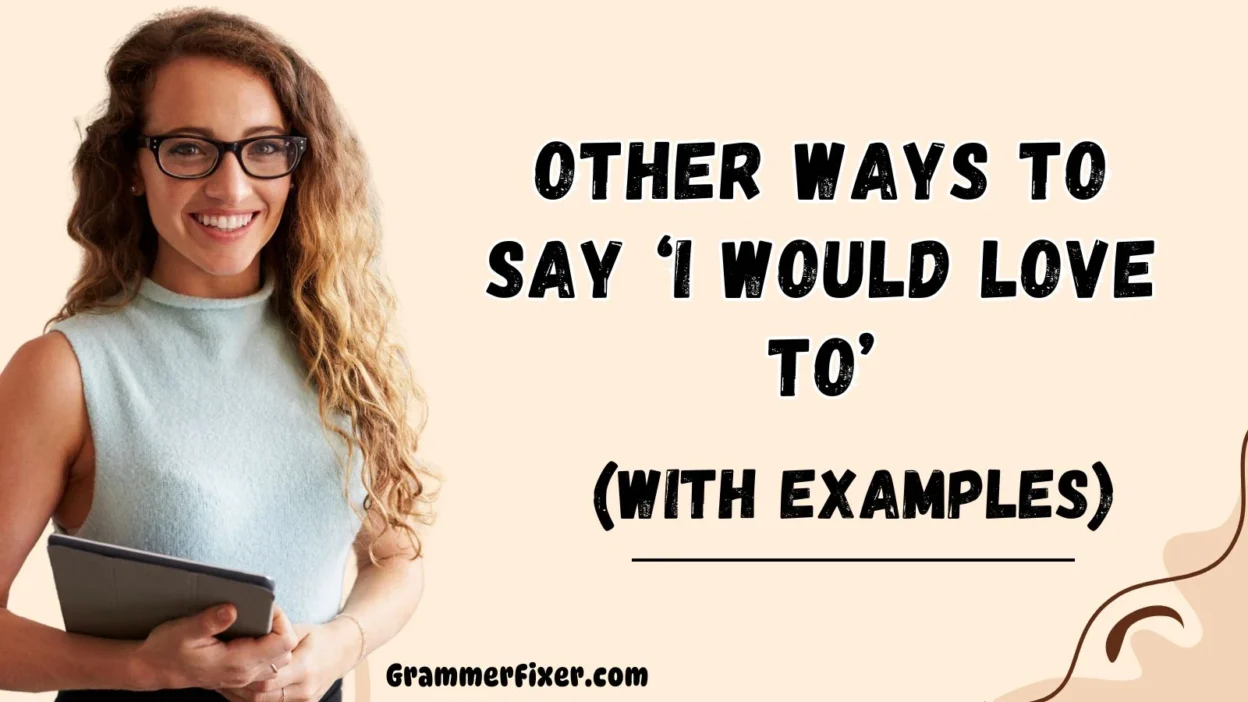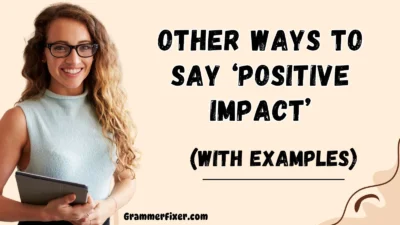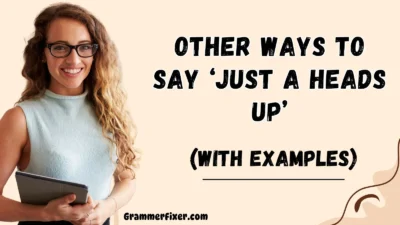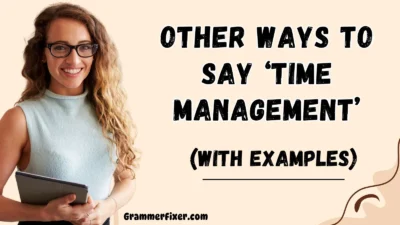Finding the right words to express enthusiasm, warmth, and genuine care can transform the way your message is received. Whether you’re accepting an invitation, agreeing to collaborate, or showing interest in a conversation, choosing an alternative to “I would love to” can make your communication more personal, professional, and memorable.
In this guide, we’ll explore 30 thoughtful alternatives — each with meaning, explanations, and examples you can use immediately in both casual and formal situations.
What Does “I Would Love To” Mean?
The phrase “I would love to” is used to show eagerness, willingness, or strong interest in doing something.
It conveys positive energy, often implying joy and anticipation about an event, activity, or opportunity.
Example usage:
- I would love to join the project team.
- I would love to have coffee with you next week.
It’s a versatile expression, useful in both personal and professional conversations, though the tone can vary depending on context.
Is It Professional/Polite to Say “I Would Love To”?
Yes — if used appropriately. In most professional settings, “I would love to” works well when the tone is warm yet respectful, especially in networking emails, collaboration offers, or team communication.
However, in formal written communication, it may sometimes sound overly casual. In such cases, you might prefer polished alternatives like:
- I would be delighted to
- I would be happy to
- It would be my pleasure to
Advantages and Disadvantages
Advantages:
- Conveys enthusiasm and positivity instantly.
- Builds connection and fosters goodwill.
- Versatile — works in personal and workplace contexts.
Disadvantages:
- May feel too informal in highly formal corporate settings.
- Can be overused, leading to less impact.
- Cultural nuances might make it sound too personal in some regions.
1. I Would Be Delighted To
Meaning: Expresses joy and honor at the idea of participating or accepting.
Detailed Explanation:
Slightly more formal than “I would love to,” this conveys a polished tone while keeping the enthusiasm intact.
Scenario Example:
- I would be delighted to contribute to your upcoming charity gala.
Best Use:
Professional invitations, client meetings, formal correspondence.
Tone: Warm, respectful, polished.
2. I Would Be Happy To
Meaning: Shows readiness and a positive disposition to help or participate.
Detailed Explanation:
This phrase is flexible — works in casual chats or work-related emails.
Scenario Example:
- I would be happy to review your proposal and share my feedback.
Best Use:
Everyday workplace communication, friendly yet professional.
Tone: Friendly, approachable.
3. I Would Be Honored To
Meaning: Indicates deep respect and gratitude for the opportunity.
Detailed Explanation:
Adds a sense of prestige and importance to your acceptance.
Scenario Example:
- I would be honored to join your panel discussion next quarter.
Best Use:
Accepting invitations from senior leaders, mentors, or important clients.
Tone: Formal, humble, appreciative.
4. I’d Be Thrilled To
Meaning: Conveys intense excitement and anticipation.
Detailed Explanation:
Best for moments when you want your enthusiasm to stand out.
Scenario Example:
- I’d be thrilled to co-author the article with you, Tami.
Best Use:
Creative collaborations, networking opportunities, exciting events.
Tone: Energetic, vibrant, casual-professional.
5. It Would Be My Pleasure To
Meaning: A polite and refined way to express readiness.
Detailed Explanation:
Carries an elegant tone that fits both personal and corporate contexts.
Scenario Example:
- It would be my pleasure to assist with the presentation slides for Monday’s meeting.
Best Use:
Formal letters, client-facing communication.
Tone: Polished, courteous.
6. I’d Be Glad To
Meaning: Shows genuine willingness and a positive attitude toward the request.
Detailed Explanation:
This phrase carries a light, friendly tone that feels authentic and approachable, especially in casual-professional conversations.
Scenario Example:
- I’d be glad to join you for the brainstorming session on Friday.
Best Use:
Everyday workplace interactions, quick responses to invitations.
Tone: Friendly, approachable, informal-professional.
7. I Would Welcome The Opportunity To
Meaning: Expresses appreciation for the chance and eagerness to take part.
Detailed Explanation:
Ideal for formal proposals, interviews, or project offers — conveys professionalism while keeping warmth.
Scenario Example:
- I would welcome the opportunity to collaborate on this campaign with your department.
Best Use:
Job applications, networking emails, project pitches.
Tone: Formal, sincere, polished.
8. I’d Be Excited To
Meaning: Shows enthusiasm and anticipation in a casual yet genuine way.
Detailed Explanation:
Perfect when you want to keep the mood light but sincere — especially in creative work or social events.
Scenario Example:
- I’d be excited to join your industry panel next month.
Best Use:
Creative collaborations, informal event invitations, team-building activities.
Tone: Upbeat, casual-professional.
9. It Would Mean A Lot To Me To
Meaning: Highlights personal significance and emotional value in accepting.
Detailed Explanation:
This adds a heartfelt touch, ideal for invitations or opportunities that align with your values or passions.
Scenario Example:
- It would mean a lot to me to contribute to your nonprofit initiative.
Best Use:
Cause-related projects, charitable events, meaningful collaborations.
Tone: Heartfelt, sincere, warm.
10. I Would Appreciate The Chance To
Meaning: Expresses gratitude and respect for being considered.
Detailed Explanation:
A professional and humble way to show you value the offer.
Scenario Example:
- I would appreciate the chance to present our findings at the conference.
Best Use:
Formal offers, workplace project acceptances, public speaking invites.
Tone: Professional, appreciative.
11. I’d Be Happy To Assist
Meaning: Shows willingness to help while keeping a positive tone.
Detailed Explanation:
Great for offering support in work or community settings.
Scenario Example:
- I’d be happy to assist with coordinating the upcoming gala.
Best Use:
Workplace support, volunteering, teamwork communication.
Tone: Helpful, friendly, service-oriented.
12. I Would Jump At The Chance To
Meaning: Communicates immediate enthusiasm and eagerness.
Detailed Explanation:
More informal, best used when you want to sound playful yet genuine.
Scenario Example:
- I would jump at the chance to attend that leadership workshop.
Best Use:
Casual invitations, team events, exciting personal opportunities.
Tone: Energetic, casual.
13. I’d Be Keen To
Meaning: Indicates strong interest and readiness.
Detailed Explanation:
This phrase is slightly British in flavor, making it a great choice for international professional exchanges.
Scenario Example:
- I’d be keen to explore how our teams can collaborate on this project.
Best Use:
Professional networking, cross-cultural communication.
Tone: Professional, interested, adaptable.
14. I Would Relish The Chance To
Meaning: Suggests genuine enjoyment and anticipation.
Detailed Explanation:
Works well when the opportunity excites you on a personal level.
Scenario Example:
- I would relish the chance to showcase our research findings to the board.
Best Use:
Academic conferences, industry showcases, creative events.
Tone: Enthusiastic, thoughtful.
15. I Would Be Overjoyed To
Meaning: Communicates deep happiness and emotional excitement.
Detailed Explanation:
Best for personal invitations or moments of shared celebration.
Scenario Example:
- I would be overjoyed to celebrate your success at the banquet.
Best Use:
Weddings, parties, milestone events.
Tone: Warm, joyful.
16. I Would Feel Privileged To
Meaning: Conveys deep gratitude and a sense of honor at being included.
Detailed Explanation:
Perfect for situations where the invitation or opportunity carries prestige or importance, such as leadership roles or special collaborations.
Scenario Example:
- I would feel privileged to represent our organization at the sustainability summit.
Best Use:
High-level networking events, formal requests, leadership invitations.
Tone: Formal, respectful, appreciative.
17. I’d Be More Than Happy To
Meaning: Adds an extra layer of enthusiasm to a positive response.
Detailed Explanation:
A slightly casual yet warm version of “I would be happy to,” showing you’re not just willing, but genuinely eager.
Scenario Example:
- I’d be more than happy to help finalize the slides for Monday’s presentation.
Best Use:
Teamwork offers project assistance, friendly workplace communication.
Tone: Warm, approachable.
18. I Would Consider It An Honor To
Meaning: Communicates profound respect for the invitation.
Detailed Explanation:
Best suited for formal occasions where you want to elevate your tone and acknowledge the importance of the request.
Scenario Example:
- I would consider it an honor to deliver the keynote at your annual gala.
Best Use:
Ceremonial events, speaking engagements, leadership roles.
Tone: Formal, humble, dignified.
19. I’d Be Pleased To
Meaning: Expresses a polished and professional readiness to help or join.
Detailed Explanation:
A neutral and versatile option that works in both formal and informal settings without sounding too casual.
Scenario Example:
- I’d be pleased to attend the quarterly review meeting.
Best Use:
Business emails, client communication, formal acceptances.
Tone: Professional, neutral, courteous.
20. I Would Absolutely Love To
Meaning: Stronger than “I would love to,” showing heightened excitement.
Detailed Explanation:
Best for casual-friendly settings where showing strong emotional enthusiasm is appropriate.
Scenario Example:
- I would absolutely love to join you for coffee this weekend.
Best Use:
Personal invites, friendly work relationships, informal chats.
Tone: Enthusiastic, casual.
21. It Would Be Wonderful To
Meaning: Adds a positive, uplifting touch to your acceptance.
Detailed Explanation:
Works well for expressing appreciation in both social and professional invitations.
Scenario Example:
- It would be wonderful to collaborate on this research paper with you, Bailey.
Best Use:
Collaborative projects, social gatherings, creative events.
Tone: Warm, optimistic.
22. I Would Be Glad To Help
Meaning: A direct and reassuring way to offer assistance.
Detailed Explanation:
Perfect for supportive roles where the main focus is offering help rather than accepting an invitation.
Scenario Example:
- I would be glad to help prepare the data analysis before Friday’s meeting.
Best Use:
Workplace assistance, volunteering, community projects.
Tone: Helpful, positive, supportive.
23. I Would Welcome Your Invitation To
Meaning: A polite and formal way to accept an offer.
Detailed Explanation:
Acknowledge the invitation while expressing that you’re open and eager to attend.
Scenario Example:
- I would welcome your invitation to join the leadership discussion panel.
Best Use:
Formal correspondence, corporate events, client dinners.
Tone: Polite, formal.
24. I Would Feel Fortunate To
Meaning: Expresses gratitude and an awareness of the value of the opportunity.
Detailed Explanation:
Good for situations where the event or project is special and competitive.
Scenario Example:
- I would feel fortunate to be part of this groundbreaking research initiative.
Best Use:
Selective events, unique opportunities, industry collaborations.
Tone: Grateful, professional.
25. I Would Jump At This Opportunity
Meaning: Shows immediate and strong eagerness to participate.
Detailed Explanation:
Very enthusiastic and casual — best for friendly professional or personal contexts.
Scenario Example:
- I would jump at this opportunity to work alongside such talented professionals.
Best Use:
Networking, collaborations, casual offers.
Tone: Excited, informal-professional.
26. I Would Be Eager To
Meaning: Conveys readiness and keen interest.
Detailed Explanation:
Balanced between professional and friendly, making it useful in many contexts.
Scenario Example:
- I would be eager to contribute my expertise to the upcoming workshop.
Best Use:
Professional proposals, skill-sharing, training events.
Tone: Professional, enthusiastic.
27. I’d Be Over The Moon To
Meaning: Very informal way to show excitement.
Detailed Explanation:
Best used with friends or close colleagues — it’s colorful but not for formal settings.
Scenario Example:
- I’d be over the moon to attend the Friday night concert with you.
Best Use:
Casual invitations, personal gatherings.
Tone: Playful, informal.
28. I Would Be Happy To Join
Meaning: A simple, positive acceptance statement.
Detailed Explanation:
Direct and clear, fits both social and professional invitations.
Scenario Example:
- I would be happy to join the lunch meeting with the new client.
Best Use:
Meetings, team lunches, casual-professional invites.
Tone: Friendly, polite.
29. I Would Feel Honored To Participate
Meaning: Combines respect and willingness.
Detailed Explanation:
Signals appreciation for being chosen or invited.
Scenario Example:
- I would feel honored to participate in your mentorship program.
Best Use:
Professional programs, ceremonies, awards.
Tone: Formal, appreciative.
30. I Would Love Nothing More Than To
Meaning: Expresses absolute desire and priority.
Detailed Explanation:
Best when you want to make it clear that the opportunity is very important to you.
Scenario Example:
- I would love nothing more than to collaborate on this innovative project with you, Cho.
Best Use:
High-value offers, meaningful projects, personal passions.
Tone: Passionate, heartfelt.
Conclusion
Finding different ways to say “I would love to” helps you avoid repetition, adapt to different levels of formality, and tailor your message to fit the situation perfectly.
Whether you want to sound professional, casual, enthusiastic, or respectful, these 30 alternatives give you a versatile toolkit for expressing eagerness in any conversation.
When choosing an alternative, consider:
- Formality level of the setting.
- Cultural sensitivity and tone.
- Your relationship with the recipient.
With the right phrase, you can communicate enthusiasm while also making your message clear, thoughtful, and memorable.



